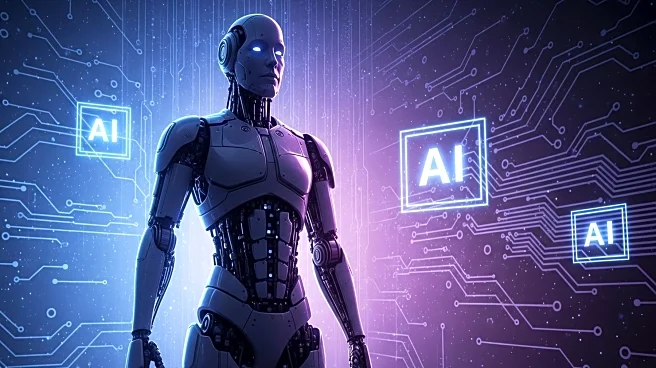What is the story about?
What's Happening?
The humanoid robot industry is poised for significant growth, akin to the surge experienced by generative AI technologies like ChatGPT. Industry leaders, including Xiong Youjun from the Beijing Innovation Center for Humanoid Robotics, have expressed confidence that humanoid robots are ready for widespread adoption. These robots, powered by artificial intelligence, are designed to mimic human appearance and movement, with applications in industrial and service sectors. Companies such as Tesla, with its Optimus robot, and various Chinese startups like Unitree and UBTech Robotics, are leading the charge in this technological advancement. The industry has seen rapid progress in both the mechanical and AI components of these robots, with expectations of transformative impacts on the global economy.
Why It's Important?
The anticipated growth in the humanoid robot industry could have profound implications for various sectors, including manufacturing, service industries, and technology. As these robots become more integrated into everyday operations, they could enhance efficiency and productivity, potentially reshaping labor markets and economic structures. The surge in investor interest and government support highlights the potential for these technologies to drive innovation and economic growth. However, the high costs and long manufacturing timelines may slow adoption compared to generative AI, suggesting a gradual integration into society.
What's Next?
Industry experts predict that humanoid robots will initially be deployed in low-stakes, failure-tolerant tasks, gradually expanding their roles as their capabilities improve. The maturation of robotics and AI technology will likely continue to attract investment and support, fostering further advancements. Companies like Tesla and Chinese startups are expected to increase production and deployment, potentially leading to broader acceptance and integration of humanoid robots in various sectors.
Beyond the Headlines
The development of humanoid robots raises ethical and societal questions about the future of work and human-robot interactions. As these technologies become more prevalent, discussions around job displacement, privacy, and the ethical use of AI will become increasingly important. The long-term implications of humanoid robots could lead to shifts in cultural norms and societal structures, necessitating careful consideration and regulation.















